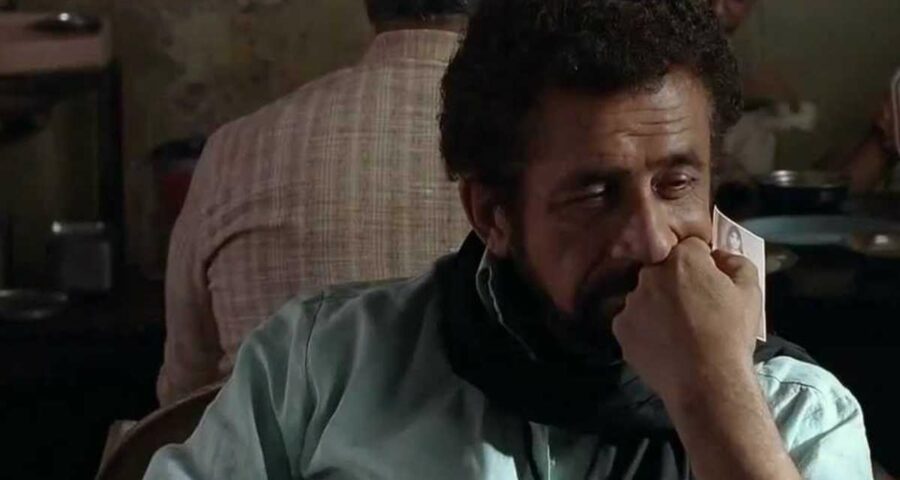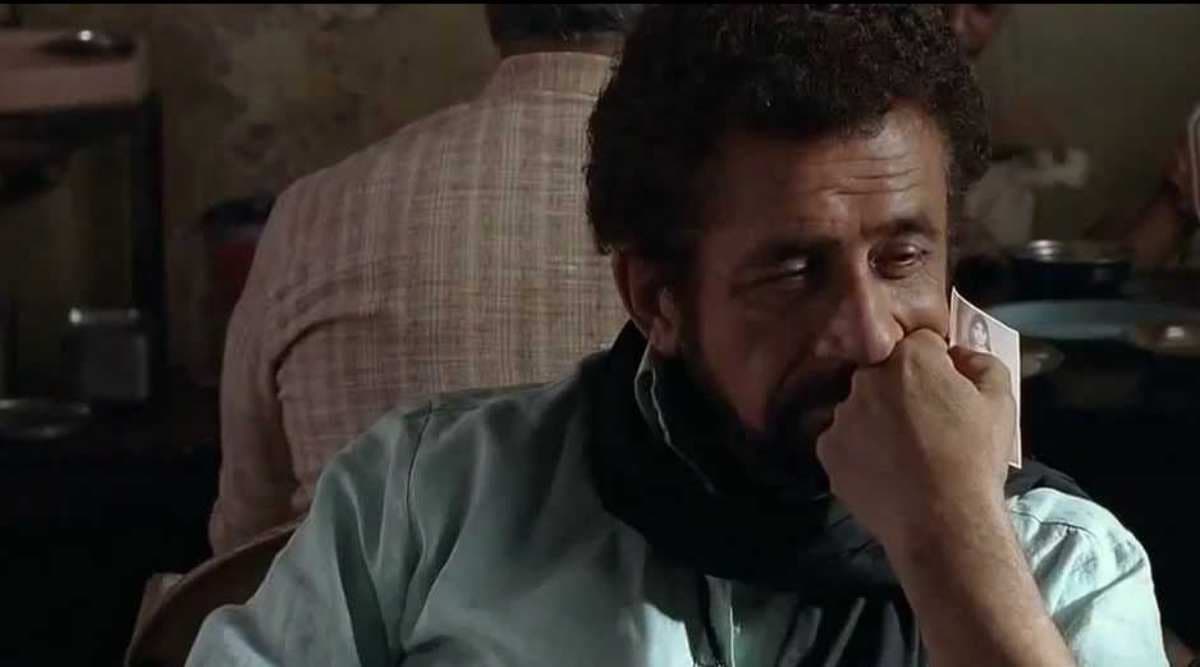It is only fitting that a day dedicated to love should serve as an excuse to revisit some of Gulzar's songs. Here are nine of his most enduring songs, in no particular order
There is joy in listening to old songs. There is a similar joy in chancing upon Gulzar’s words. Reason for both is the same: comforting familiarity. Gulzar is who you find and who finds you. He is that writer whose words you underline, moved by his gentle empathy and faultless depiction. In his still-active six-decade long career as a lyricist, he has written on every conceivable emotion, but nobody quite represents lovers like he does.
He writes like he has seen them in close quarters, like he has been one of them and never recovered.
It is only fitting that a day dedicated to love should serve as an excuse to revisit some of his songs. Here are his 9 most enduring love song, in no particular order.
Dil To Bacha Hai Ji (Ishqiya, 2010)
In Ishqiya, guns are an extension of a man’s hand. They are everywhere — on the streets, in a house, cocked to a woman’s head. The sound of a flying bullet is so common it could be mistaken for a heartbeat. The heart, however, is locked away from brutality. In essence, Dil To Bacha Hai Ji, a tender song in a film about two con men on the run to save their lives, is about falling in love. But mostly, it is about their reawakening to the existence of the heart amidst the surrounding blood. In a story where children are born burdened with experience, the song captures the weight of innocence.
Gulzar and Vishal Bhardwaj (producer and music director) collaborations are always special. But here they achieve something rare: in a song about love, they make the emotion look like indulgence, a disease almost. The symptoms are embarrassingly evident: Chehre ki rangat udhne lagi hai. The culprit, of course, is the heart. Sung by Rahat Fateh Ali Khan, the song unfolds like a helpless confession of having given in after relentless wrestling. But it really opens up when after constant admission of the heart being innocent, the diseased gives voice to what is causing the dis-ease, using the language of the land for the untameable organ: Dil sa koi kameena nahi. Gulzar here makes even slang sing.
Pehli Baar Mohabbat (Kaminey, 2009)
First love hits hard. One sinks without hesitance but realises that collapse as fall only in retrospect. Then everything seems new and everyone else inconsequential. There is so much wonder and surprise; so much conviction of accepting the present as the only foreseeable future. Gulzar commits to wording this experience by shifting his gaze from the lover to the love. He carefully dissects the headiness of the weightless thud, detailing the urgency of affection before it is corrupted by the recklessness of desire:
But depth of his emotional acumen shows when in a love song he uses jhoothe— a remarkably unremarkable word so seeped in mundanity that its closest English translation is the prosaic ‘leftover’ used in context of discarded food—to indicate togetherness. By preferring it to a more dignified synonym of sharing, he locates audacity for gentle transgressions as the reason behind endurance of first love.
Bekaraan (7 Khoon Maaf, 2011)
What is love without desperation; what are lovers if not desperate? Bekaraan, the Urdu word encapsulating restlessness, routinely features in Hindi love songs to denote their helplessness when apart. As if absence can put lives on hold.
Gulzar turns this oft-used word on its head by inserting it in a song which encloses the perils of meeting. Bekaraan here is the lyrical equivalent of being troubled by mad pounding of the heart when transfixed by lover’s gaze, of holding the breath for so long that it makes one unable to breathe. The lyricist suggests with utmost reverence that if absence causes unrest, presence too can wreck. Bekaraan here is a gentle imploration to look away so that one can live again. A lover needs time to recover.
Chupke Se (Saathiya, 2002)
It is only fitting that an urban drama centered on marital discord and set in space-starved Bombay constitutes one of the most evocative songs about longing in recent times. Chupke Se is an instance of Gulzar taking free rein and crafting a wish with the detail of a story. The central desire is to meet and, when together, to not let go. The wish here is to hide from the world by using the cover of night.
Saathiya, Gulzar’s second collaboration with AR Rahman after Dil Se (their first project was shelved) is a charming album, packed with memorable songs including a rare Adnan Sami number. But Chupke Se is more than indulgence of fanciful impulses, enfolding instead the oldest folly of lovers: to make every little thing about themselves, to find excuses to talk about each other convinced by the uniqueness of their story.
Mera Kuch Saman (Ijazat, 1987)
The premise is of a wife, well aware of her husband’s past, wanting to start afresh. Seeking to make the house her own, she sends remains of the past relationship to the woman concerned. This time the woman responds asking for other things she would like to have back. She sends it in the form of a letter, knowing it will be read aloud.
There are many reasons for the song’s persisting popularity. The lyrics, written in free verse, do not rhyme. It proved naysayers wrong who believed only Lata Mangeshkar could pull off a higher range. But I guess it continues striking a chord for quelling the burning insecurity of lovers: apprehension of being forgotten when everything is over. Gulzar posits this as an impossibility for, how do you return 116 moonlit nights spent together and—by extension—how do you forget remembrance stuck as memories?
Dil Hi Toh Hain (The Sky Is Pink, 2020)
In The Sky Is Pink, director Shonali Bose bypasses the inevitable breakdown of a marriage post demise of a child by crafting it foremost as a love story. One can read it as wish fulfillment; a cinematic rectification by the director whose own relationship fell prey to a similar exigency. But she reasons it in her own way by giving the couple and a backstory.
Much is achieved through the aid of Gulzar’s words. Dil Hi Toh Hain, a strangely affecting song withholding the predicament and joy of being in love, features the couple before they became parents. It captures the small trepidation of being alone for the first time, documents the quiet bravery of the heart to brave it all. The refrain Dil Hi Toh Hain transitions from a helpless plea to a quiet reassurance. Containing a lifetime of information, the words leap approximating the buoyancy of the heart and its hidden mischief. The heart is what it is.
Chup Chup Ke (Bunty Aur Babli, 2005)
When a young boy and a girl, both professional tricksters, fall in love, their song anticipates a clever wordplay on stealing hearts. But Gulzar, this time teaming up with the trio Shankar-Ehsaan-Loy rarely gives precedence to the mind.
Bunty Aur Babli is a phenomenal album, reminiscent of the easy likeability of the music directors’ previous songs. But Chup Chup Ke–a wonderfully whimsical song– is all words. The lyricist conjures impossible images sustaining poetic liberties with the conviction of lovers: the sky has taken a flight and the ground they walk on is taking strides. These fantastical apparitions seem projection of an inebriated mind. Instead they are visions of sober souls drunk in love. For, he seems to ask, what could be a more potent intoxication?
Tere Bina Zindagi Se Koi (Aandhi, 1975)
People of my generation encountered Aandhi in different ways. For those invested in Gulzar, it is one of the films he directed. For Bengalis, the film featured their star Suchitra Sen. For me, who is both, the knowledge was inherited from my father, a devout Kishor Kumar fan. I remember him singing songs from the film and though I was too young to realise they all belonged to the same album, the running grief in them never made me question otherwise.
For someone whose music taste is defined by a singular emotion —only sad songs-—Tere Bina Zindagi Se Koi is the saddest song I have heard. It contains no shred of restlessness or bitterness. In fact, it is a long sigh let out by two people who meet not to live together but after having lived their life without each other. This is them admitting separation as the only regret in life, only to confess life assumed lesser meaning without their presence.
Dil Se (Dil Se, 1998)
Dil Se is an explosive album; a befitting evidence of AR Rahman and Gulzar’s collective creative energies. It also marked one of the earliest instances of Rahman lending his voice to a song. For most part it plays out like a howl anticipating the doomed fate of the lovers caught in a storm. Carrying none of the tenderness of Ae Ajnabi, it also withholds a world of fury against a world conspiring against love.
By crafting a song around the sigh of a heart, Gulzar seems to be suggesting the futility of it all.
For more lifestyle news, follow us: Twitter: lifestyle_ie | Facebook: IE Lifestyle | Instagram: ie_lifestyle
Source: Read Full Article


